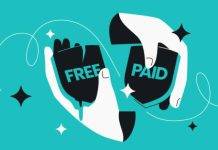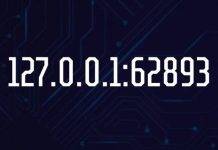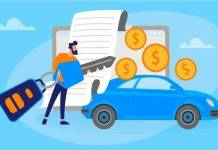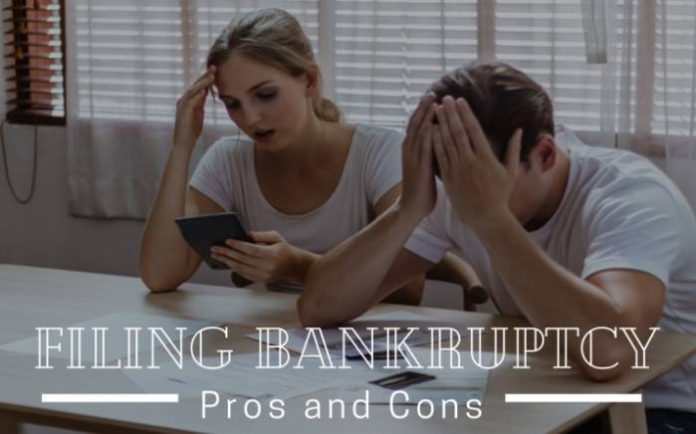Filing for bankruptcy is a big decision for those struggling with mounting debt. When you file for bankruptcy, it can alleviate some excessive financial burden but it may not be the best choice for every situation. Bankruptcy can wreak havoc on finances and can impact you for many years down the road. There are both pros and cons to bankruptcy. It’s important for each individual consumer to weigh the pros and cons for their situation.
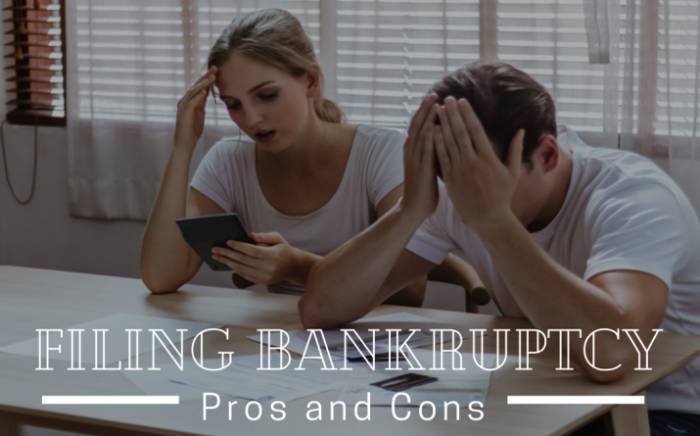
Pros of Filing Bankruptcy
There are plenty of benefits of bankruptcy, which makes it an attractive option for many people.
You Are Granted an Automatic Stay
The second you file bankruptcy, you are protected under a law called Automatic Stay. This means creditors aren’t able to pursue payment of debts or take actions against you until a repayment plan has been finalized or bankruptcy is discharged.
Get Relief for Dealing with Creditors
Filing bankruptcy helps with some of the pressure of handing your multiple creditors. There can be some immediate relief but it also depends on the type of bankruptcy you file.
A Court Appointed Representative
Once you file a petition then you get assigned a trustee who oversees the case through to your discharge. This trustee operates on your behalf throughout the bankruptcy process and handles all communication between the creditors and you. In the case of Chapter 13 bankruptcy, this trustee is also the one who will process all your payments.
Prevent Further Legal Action
One of the biggest benefits of filing bankruptcy is getting cleared of debt you owe and are having trouble paying. You could also head off any legal trouble in the future you have due to non-payment of the debt settlement process guide. You do need to be careful with the timing of bankruptcy since, based on when you file, you may not be cleared of all of your debt.
You May Keep Some Assets
In Chapter 13 bankruptcy, you are typically holding onto your assets as you repay them. Even in Chapter 7 bankruptcy, where most of your assets will be liquidated in order to pay down the debt, some may still be protected. For example, Chapter 13 may help delay car repossession or foreclosure.
Back Taxes Can Be Addressed
Filing bankruptcy can be a way to deal with back taxes, especially if you have reached the point that your wages are being garnished. In some cases, tax debt can’t be dismissed but typically you can get rid of older taxes.
A Fresh Start
Bankruptcy can give you a clean slate in order for you to rebuild your finances and establish your credit. There is even the potential for your credit score to increase as you start working with creditors.
The Cons of Bankruptcy
Even with the benefits, there are still drawbacks to filing for bankruptcy.
You Lose Assets of Value
Depending on which type of bankruptcy you file and your income, you may lose your car, home, or other assets.
The Cost
You also need to be able to pay the cost of bankruptcy, include court fees. In some cases, you may qualify for legal aid if you aren’t able to cover fees.
You Can’t Discharge Federal Student Loans
Even though there are some rare exceptions, in many cases, federal student loans aren’t dischargeable. Even though federal student loans can’t be discharged, they can be addressed and controlled.
You Could Still Be Responsible for Some Debts
Besides federal student loans, there are also some other debts that can’t be written off and these include court orders, some fines and taxes, and child support. However, just like with student loans, these debts can be addressed and the collection process changed.
The Other Party Is Still Responsible for Joint Accounts
Creditors are able to demand payment for any cosigners or non-bankruptcy debtors you have.
Potential Criminal Charges
The information you give when you file will be scrutinized. If you provide false or inconsistent information, there could be potential criminal charges.
It’s a Long Process
Depending on the type of bankruptcy you file, it could be a long process. Chapter 7 bankruptcy moves fast and discharges happen within a few months. However, Chapter 13 bankruptcy is a much longer process. You could be in an open bankruptcy for three to five years and it will negatively impact your finances for longer.
You Could Lose Your Business
If you are a business owner and the bankruptcy trustee determines the business has no value then you could be forced to sell. In some cases, the trustee may operate the business until it is sold.
Trouble Renting and Possible Eviction
If you rent the home you live in then some landlords will evict you and you could have trouble renting in the future.
Impact on Career
Depending on your job or field, you could be disqualified from certain positions.
Issues with Credit
You could see a significant drop in your credit score and have trouble applying for future credit for some time. This affects your ability to get a mortgage and other loans. Bankruptcy stays on a credit report for up to 10 years.
Doesn’t Address the Cause of Financial Trouble
Bankruptcy can be a solution in some circumstances, but it won’t fix what led to you being in debt. You might be doomed to repeat your mistakes if you don’t resolve the problem.



